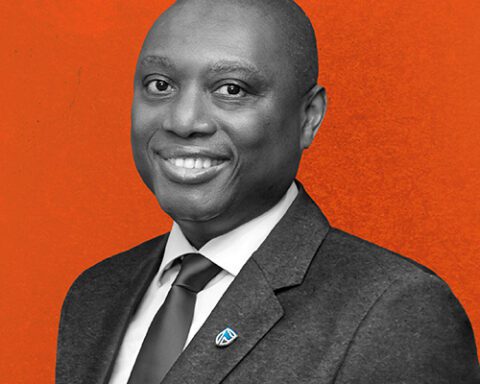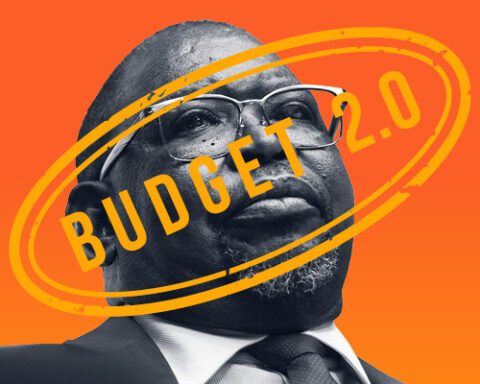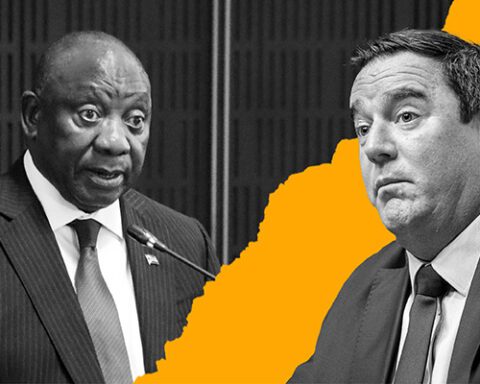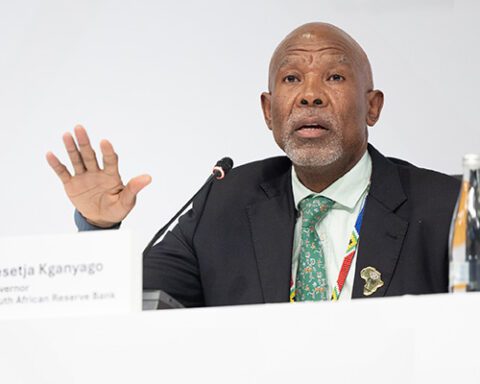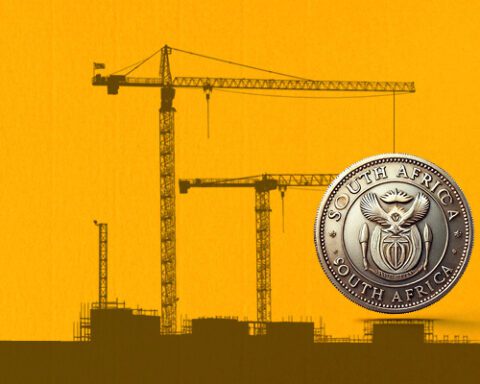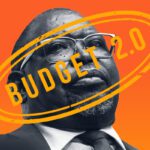The exhilarating early days of a new relationship are not only being experienced by the government of national unity (GNU); the positive afterglow is also boosting South Africa’s economy.
The ANC, the main opposition DA and eight other political parties in the GNU held their first cabinet meeting in mid-July. So far – on the surface, at least – the team is all smiles.
Days later, in his opening of parliament address, President Cyril Ramaphosa emphasised “sustainable, rapid economic growth” as the central focus of his multiparty government.
Goolam Ballim, chief economist at Standard Bank and now in his 20th year in the role at Africa’s largest lender, believes the political changes will pay off. He predicts that South Africa’s economy could be “on course” for 3.5% growth over a “five-year horizon”. This growth will be supported by improving global sentiment, driven by interest rate cuts from the US Federal Reserve and moderate stimulus from China.
South Africa can expect a 1 percentage point (pp) reduction in interest rates over the next 12 months.
“The anchor point – what undergirds our prosperity – is the GNU,” Ballim said at a recent function hosted by the bank in Johannesburg. “The elections give us the opportunity for a stable political trajectory.”
Power shortages have weighed heavily on economic growth over the past two years, shaving at least 1.5pp off GDP growth. The economy has expanded by an average of less than 1% over the past decade, mainly because of an energy shortage. Mismanagement, corruption and incompetence have also hampered government services.
But, under Operation Vulindlela – a programme run by the presidency, National Treasury and the private sector – progress has been made. The initiative aims to drive further structural reforms in electricity, transport and other sectors.
South Africa has experienced its longest period without load-shedding since 2020, thanks to improved maintenance schedules at Eskom and the commissioning of new generating units. Backlogs at the port of Durban have been cleared and Transnet has improved rail volumes.
Stabilising Eskom and Transnet’s ports and railways could add 2pp to growth, Ballim believes.
Stanlib chief economist Kevin Lings is optimistic that the Reserve Bank will cut interest rates to 7% from 8.25% as inflation eases. He stresses the importance of engaging the private sector in infrastructure development, calling it the most critical policy focus in decades.
“It’s critical that it gains more momentum,” he said at the same function.
Despite making headway, key projects still face delays. For example, there is a legal dispute over the contract awarded to a Philippine company to develop and upgrade a container terminal in Durban. Business confidence remains low and consumers’ balance sheets are stretched.
Stocks and bonds
“The damage inflicted on our infrastructure is immense. The damage inflicted on our institutional capacity at state-owned enterprises and in government is immense, and improving that is all going to take a lot longer,” Lings said. “So if you want to be optimistic, you’ve got to take a kind of a five-year view, and you’ve got to hope that the GNU remains together.”
Business Leadership South Africa CEO Busisiwe Mavuso is looking forward to policy changes that will restore confidence in the government. Key developments include Ramaphosa’s signing of a bill to overhaul the country’s power generation market and the expected Financial Action Task Force (FATF) review of South Africa’s financial system, following the country’s greylisting in February 2023.
Mavuso also foresees a renegotiation of the National Health Insurance Act, which has faced widespread opposition from doctors, trade unions and civil society groups. Critics argue that the NHI scheme, which was signed into law just before the May 29 elections, is unworkable and could cost taxpayers more than R200bn a year.
For Victor Mphaphuli, the head of fixed income at Stanlib, the alliance between the ANC and the DA will last because practical solutions are more important than ideology, especially as voters look for tangible improvements.
While the ANC is allied with the SACP and trade union federation Cosatu, and advocates state involvement, the DA favours business-friendly policies and less state intervention.
As a result, Stanlib’s bond team has taken on additional risk by extending the duration of its portfolio (by buying bonds that take longer to mature), reducing the cash it holds and ensuring that offshore holdings can withstand gains in the rand against foreign currencies, such as the dollar.
Domestically focused South African equities also look promising, said Jean-Pierre du Plessis, director in Stonehage Fleming’s global equity management (South Africa) division. The firm’s Stonehage Fleming Equity Prescient fund owns 23 high-quality JSE stocks, including Capitec, FirstRand, Bidvest, PSG Financial Services, Shoprite, Richemont and Bidcorp, that it believes are set to benefit from an improving economy.
Many stocks trade below their long-term average valuations, making them attractive buying opportunities given that companies are generally in a healthy financial position, Du Plessis said.
“Our confidence in an attractive return outlook for our best-in-class JSE-listed companies and strategy has grown,” he added. “Future stability in the GNU and better delivery from the new administration will now be vital in stimulating investment and economic growth, thereby providing a more favourable medium- to longer-term operating environment for domestically focused companies.”
But as with any relationship, it’s not easy to keep the home fires burning. It takes trust, communication and respect.
Top image: Collage. Currency.

